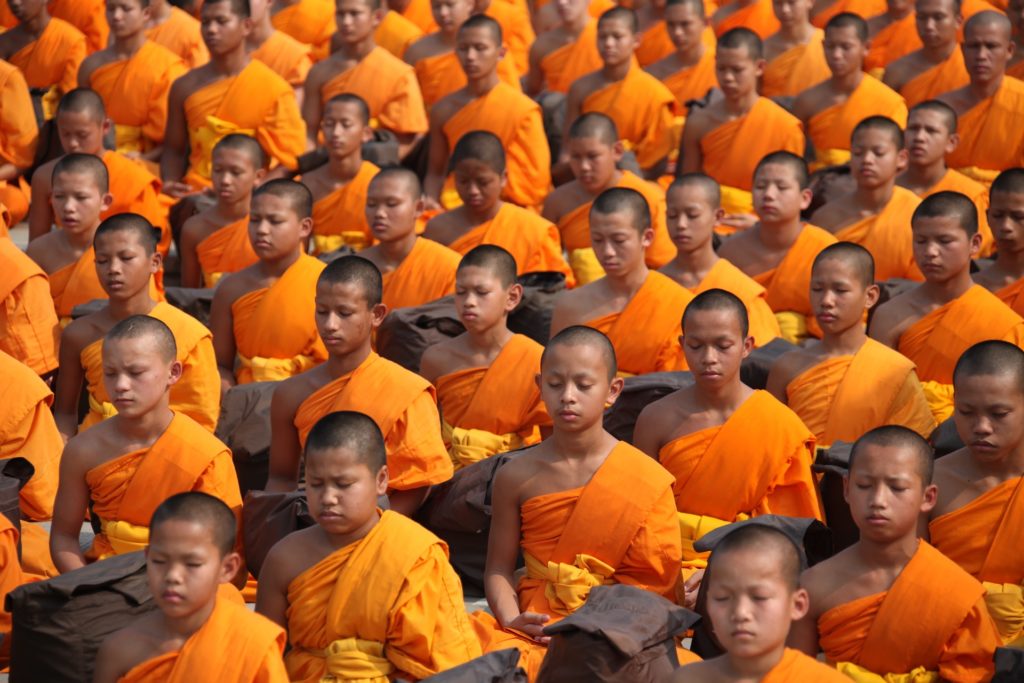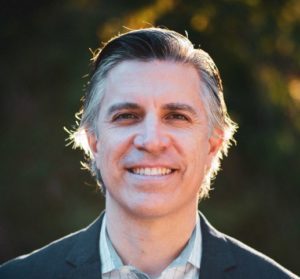

Dr. Mica Gonzalez
Insider Training: How Mindfulness and Self-Reflection Increase Your Stock as a Parent
Jaime Jr. woke up on the wrong side of the bed this morning. It’s been about a week since the two-and-a-half-year-old moved out of his parents’ bed in preparation for the arrival of his new baby brother. Usually, the child takes pride in choosing his clothes and putting them on with a little help before school. But today is not like that. Put simply, Junior’s not feeling it. Dad’s on morning duty, groggy himself from having worked late, and already getting snappy as his toddler refuses to cooperate.
What’s dad to do? Sure, there are techniques he could try. Things like taking some calming breaths, giving the child appropriate choices, or using some trickster skills might work. In another post we saw Vanessa suavely endure and manage a very public tantrum by her 3 year-old, Marco. But the space between overtired/mad at the world and compassionate/discerning leaves quite a gap. Enter mindfulness.
Mindfulness
Most people think of mindfulness as being aware or calming yourself down. Strictly speaking, it’s neither. According to Dr. Sam Himelstein at the Center for Adolescent Studies, mindfulness is simply the mental practice of non-judgmentally observing yourself in the present moment. Paying attention to how thoughts and feelings pass through you can certainly lead to increased awareness or greater calm. But I suggest you don’t make that the goal of your practice, at least not initially. It’s just too easy–and often counterproductive–to leave the present moment and jump right to a solution.
“…mindfulness is simply the mental practice of non-judgmentally observing yourself in the present moment.”
Hearing this, the father above could reasonably ask, “And then what? While my kid’s refusing to get dressed the clock is still ticking. I can’t just sit there watching my thoughts and feelings, right?” One answer is: “Don’t worry about getting calm right now. Just continue to watch yourself without criticism as you take action. That is, practice your mindfulness all the way through the conflict.” When you start experimenting with this, it’s probably not going to be easy. You’re going to be working against all manner of assaults to your good nature, so just keep it simple. You may also find that your mindfulness gets stronger when you sprinkle on some self-reflection.
Self-Reflection
As with mindfulness, self-reflection is best thought of as a mental action that can be cultivated. It is the habit of being curious about yourself. It’s asking yourself, “Why do I feel this way” or “What made me do that?” So why would practicing self-reflection matter for parenting? Because it puts your own patterns on display, from the sacred to the profane. While it doesn’t sound too pleasant described as such, wondering about their motivations and behaviors can actually empower parents because it gives them the data they need to make a choice about how to behave with their children.
“So why would practicing self-reflection matter for parenting? Because it puts your own patterns on display, from the sacred to the profane.”
Dan Siegel, the co-author of Parenting from the Inside Out, uses his own experience as an example as he realized how helpless he became when his infant son cried uncontrollably. Over time, Siegel was able to calm himself once he reflected on the sensations in his body that were rooted in painful experiences he had as a young doctor treating very ill children. He realized then that his son’s tears triggered his own primitive despair and terror. The result was that he was able to choose how to help his son rather than remain trapped in and victimized by his dread.
It’s probably pretty clear that mindfulness and self-reflection work together. We can think of both of them as strategies to use before, during, and after conflicts. For example, if Jaime Sr. were able to be mindful through the dressing conflict with his son, he would likely have good data to use for self-reflection later, and the results of such a combination would be invaluable in preparing for and hopefully sidestepping the next morning duel with Junior. It’s these sorts of tectonic shifts that lead to the biggest improvements in the child-parent relationship because the parents are able to see options that they never knew were there. While it may not be an automatic process, practicing mindfulness and self-reflection is free and may provide one of the best returns on investment available.
If you’re located in California and need help determining if your child and/or family need professional help, contact Family Spring by submitting an inquiry at this link.
Related Posts
